Description
This course contains recordings from the live event held on April 20, 2023.
The program address endoscopic techniques used to manage achalasia, an incurable disease that occurs equally among men and women. It is characterized by insufficient relaxation of the lower esophageal sphincter and difficulty in swallowing and is often misdiagnosed as gastroesophageal reflux disease (GERD). Achalasia should be suspected in those with dysphagia to solids and liquids, and in those with regurgitation unresponsive to an adequate trial of proton pump inhibitor (PPI) therapy. These patients commonly present with symptoms that may contribute to misdiagnosis including substernal chest pain during meals, unintended weight loss and heartburn.
The course provides recordings of a variety of case and interventional scenarios that were presented live from leading institutions in both the U.S. and Internationally. Moderated by leading authorities, these recordings demonstrate how to incorporate these techniques into hospital and other practice settings.
Recordings released: May 2023
Viewing Time: Approximately 5 hours
Learning Objectives
Upon completion of this educational activity, participants will be able to:
- Describe clinical success as defined by Eckardt score <3.
- Identify the rate and severity of common adverse events.
- Summarize recurrence rates during long-term follow-up, inclusive of GERD with pH studies, rate of erosive esophagitis, and proton pump inhibitor use.
Agenda
Session 1
Moderators: Joan Chen, John Clarke, Abdul Aziz Aadam, Chris Thompson
Live case # 1: HREM and EndoFlip (John Pandolfino, Northwestern)
Live case # 2: POEM (Mouen Khashab, Johns Hopkins)
Live case # 3: Pneumatic Dilation (Michael Vaezi, Vanderbilt)
Session 2
Moderators: Joan Chen, Michael Vaezi, Roberta Maselli, Mouen Khashab
Live case # 4: POEM (Chris Thompson, Brigham and Women’s hospital)
Live case # 5: Anti-reflux POEM (Stavros Stavropoulos, John D Archbold Memorial Hospital)
Lecture: Challenging Achalasia Cases (John Pandolfino, Northwestern)
Video case: Peroral Endoscopic Crurotomy (Stavros Stavropoulos, John D Archbold Memorial Hospital)
Recorded Question and Answer Sesssions
Course Directors and Faculty
Course Directors |
Mouen A. Khashab, MD, MASGE
Professor of Medicine and Director of Therapeutic Endoscopy
Johns Hopkins University
Baltimore, MD
|
 |
Venkata Sandeep Akshintala, M.B.B.S.
Program Director, Medical Pancreatology Fellowship,
Assistant Professor of Medicine
Johns Hopkins Medicine
Baltimore, MD, USA
|
 |
John Pandolfino, MD
Northwestern Medical Faculty Foundation
Chicago, Illinois
|
Faculty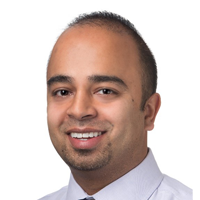 |
Abdul Aziz Aadam, MD
Northwestern University
Chicago, IL
|
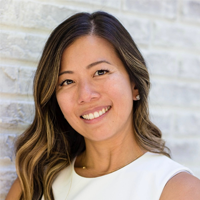 |
Joan Chen, MD
University of Michigan
Ann Arbor, MI
|
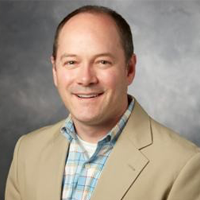 |
John O. Clarke, MD, FASGE
Stanford Medicine
Redwood City, CA
|
 |
Roberta Maselli, MD
Humanitas Research Hospital
Milan, Italy
|
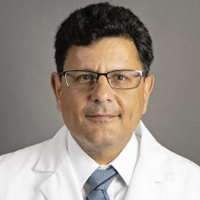 |
Stavros Stavropoulos, MD
Archbold Gastroenterology Group
Thomasville, GA
|
.jpg?sfvrsn=cd30ee5d_0) |
Christopher Thompson, MD, MHES, MSc, FASGE
Brigham and Women’s Hospital/Harvard Medical School
Boston, MA
|
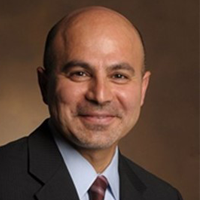 |
Michael Vaezi, MD
Vanderbilt University Medical Center
Nashville, TN
|
Optimal Viewing Experience on GI Leap
Although all browsers continually roll out new versions and updates, we currently recommend using
Chrome for the best functionality when accessing GI Leap. Please note that Internet Explorer is not a supported browser. Follow these tips for better streaming and viewing of ASGE videos:
- Close other applications and browser tabs. This decreases the load on memory so your computer or other device can focus on streaming.
- Use a 5 GHz frequency if your router supports it. The common 2.4 GHz frequency is used by household appliances, so is more crowded. Avoiding it is like getting into the carpool lane on a freeway: smoother sailing.
- Use Ethernet instead of Wi-Fi if possible but GI LEAP is built with Wi-Fi in mind.
- Monitor your internet connection. If your ISP has promised you 5MBps and you are getting only 1MBps, it's time for a phone call to your internet provider to sort that out.
Hardware/Software Requirements
Windows Requirements:
Operating system: Windows 10+
Browser: Chrome v90.0+, Firefox v84.0+, Edge v90.0+
Internet connection: DSL, cable modem, or other high-speed connection
Flash: Adobe® Flash® Player 12+
Macintosh Requirements:
Operating system: Mac OS X 10.6.8+
Browser: Mozilla Firefox v84.0+, Safari 14+, Chrome v90.0+
Internet connection: DSL, cable modem, or other high-speed connection
Flash: Adobe® Flash® Player 12+
Contact Information
For technical difficulties or questions related to content, please contact ASGE between the hours of 8:30 AM and 5:00 PM (CST) at 1-866-353-2743 or email
education@asge.org.